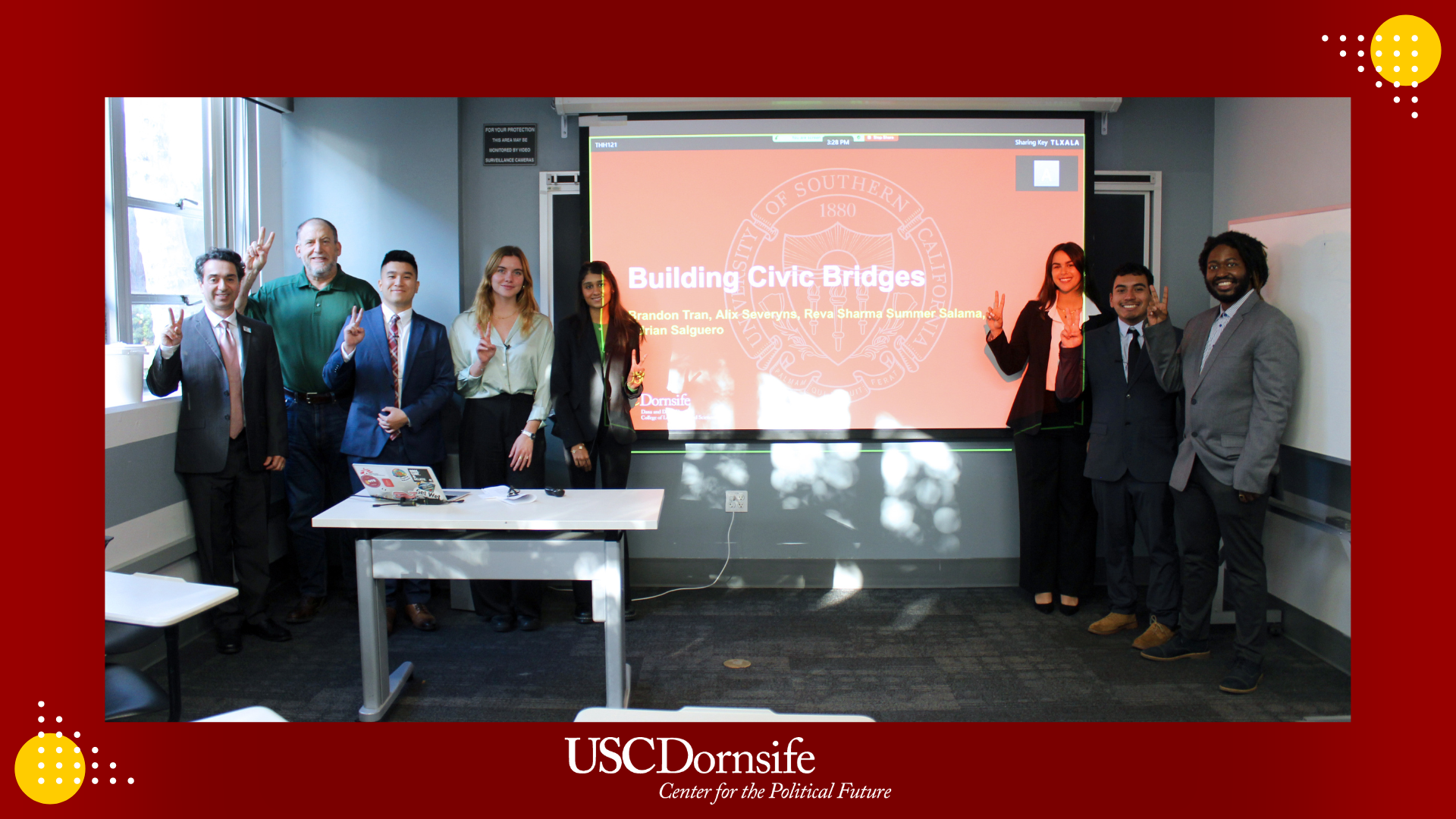
Fall 2023: “How a Bill Becomes a Law: Depolarization Legislation” with Convergence, Interfaith America, Business for America, and Resolutionaries
For the Fall 2023 semester, CPF POSC 395 Policy Research Internship students examined the 2021 Building Civic Bridges Act by analyzing its pros and cons and the context for its implementation. The bill, introduced by Representatives Kilmer (D-WA) and 23 bi-partisan cosponsors, would create a national Office of Civic Bridge building and funnel $40 million into community organizations across the country to help people build relationships across lines of difference, such as political affiliation, race, ethnicity, and religion. The bill did not get out of committee and was reintroduced into the latest session of Congress, where it remains in committee.
Students reviewed existing government programs that support strengthening community connections and explored the impact of polarization on American companies. They examined the bill itself to assess objections to its passage and solutions or alternatives that may achieve similar goals through different means. They presented their extensive research and recommendations to our partners, Convergence, Interfaith America, Business for America, and Resolutionaries.
Summer Salama, a senior majoring in Political Science, said this about her research experience:
“I focused on current bridging efforts at the federal and state levels, specifically where they receive funding from and the impact the Building Civic Bridges Act can have if passed out of committee. I learned the critical importance of bridging efforts, recognizing how initiatives like the Building Civic Bridges Act can depolarize legislation more progressively. Utilizing existing bridging programs is key to empowering communities in solving shared problems. CPF provided support and the resources to meet with officials and gain more knowledge on a very new research topic.”
Brandon Tran, a senior majoring in Political Science, said this about his research experience:
“My specific lane of research delved into the financial implications of political polarization. While I gained in-depth knowledge of this area, working with my teammates and our partners also broadened my understanding of how I can contribute to efforts to depolarize the country moving forward. Although the internship has ended, my fellow interns and I see this as just the beginning for future work each of us can build on.”
Project: How a Bill Becomes a Law: Depolarization Legislation
USC Students: Summer Salama, Adrian Salguero, Alix Severyns, Reva Sharma, and Brandon Tran
Research Question: Can the Building Civic Bridges Act become a viable bill to attain vital funding for bridging organizations? Or should momentum be directed into new efforts with a more realistic chance of passage?
Policy Recommendations:
- Cost of Polarization on Business
- Commission a high-profile study on the net economic effect of political polarization
- To Help Get the Bill Passed
- Highlight the need for bridging efforts federally
- Use local-level arguments to show the positive impact of the initiatives that would be funded
- Potential Revisions to the Bill
- Use resources like PACE’s Civic Language Perceptions Project to potentially restructure and revise parts of the bill
- Work with existing mechanisms used by the bridge building field
- Consider the viability of incorporating the BCBA into an omnibus bill
- Macro-Aspect of Bridge Building and Funding
- Direct funding through BCBA to disperse amongst organizations and programs directly
- Take accountability to have a direct impact on all programs
- Micro-Aspect of Bridge Building and Funding
- Lax requirement for organizations to receive funding
- To receive funding, organizations must collect data measuring the impact of their work
Read the group’s full research presentation.
Watch the video presentation on “How a Bill Becomes a Law: Depolarization Legislation.”